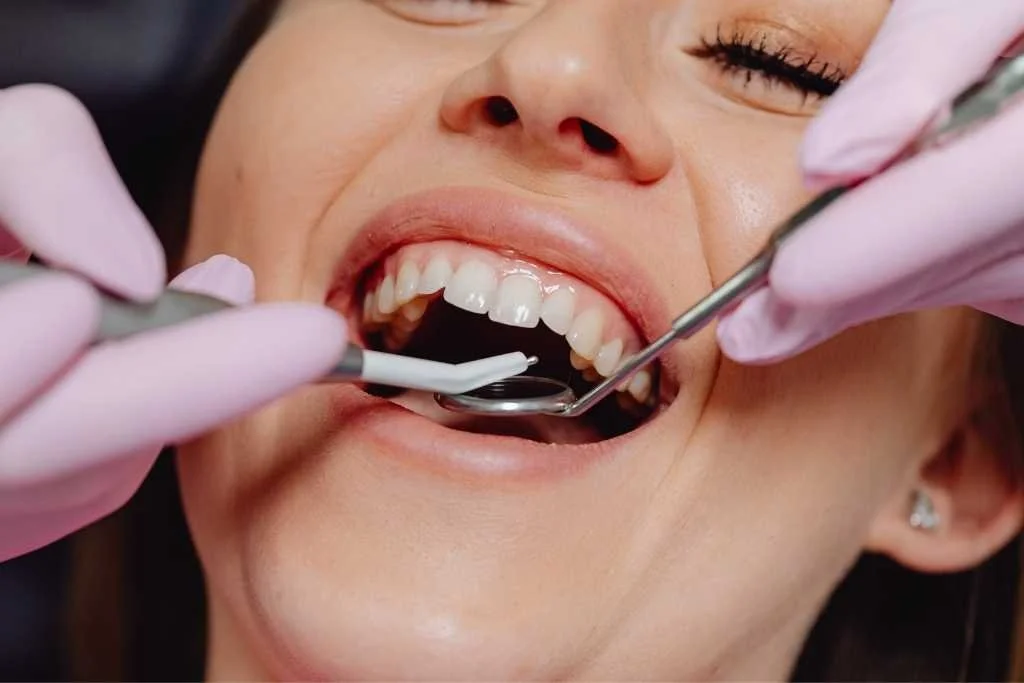Unexpected Causes of Bad Breath
Gastrointestinal disorders: Gastrointestinal problems such as gut dysbiosis, acid reflux, GERD, or H. Pylori (stomach ulcers) can cause bad breath.
Sinus infections, Lung disorders, or other respiratory problems: Bacteria in the sinus, lungs, nasal passages, can produce post nasal drip that leak into the mouth and cause bad breath.
Medications: Certain medications can cause dry mouth and saliva is important to maintain good breath.
Dehydration: When the mouth is dry, it can't produce enough saliva to wash away bacteria and food particles, leading to bad breath. Saliva is also protective and fights bad breath odors.
Food: In certain cultures foods like onion, garlic, and other spices are associated with bad breath.
Fasting diets: Fat breakdown in rapid fashion can cause ketonic breath or ketones in the breath and that can cause bad breath.
Autoimmune disorders such as sjogrens syndrome can lead to dry mouth and breakdown of immunity that can stop bacterial overgrowth.
Frequently Asked Questions About Bad Breath
-
The most accurate way to test for bad breath is to go to a dentist specializing in bad breath and they will perform a gas chromatography test to measure the sulfur gasses in your breath. Another way to check for bad breath is to lick the back of your wrist (wrist lick test), let the saliva dry, and then smell it. A third way is to scrape the back of your tongue with a spoon and smell the residue.
-
Treatment for bad breath depends on the underlying cause. If the problem is coming from your mouth, you can see your periodontist for cleanings and customized antibiotics creams/rinses to remove the problem. If the problem is coming from your gut, the bacteria/acids in your digestive tract need to be fixed.
-
Brushing and flossing regularly, using an appropriate mouthwash, scraping the back of the tongue can help remove bacteria and food particles that can cause bad breath, and using a xylitol mouth spray can increase saliva flow and freshen breath. Drinking water throughout the day can also help to keep the mouth hydrated and prevent dry mouth.
-
Yes, bad breath can be caused by a variety of medical conditions including inflammatory bowel diseases, gut dysbiosis, leaky gut, gastric ulcers, SIBO, chronic sinus infections, postnasal drip, acid reflux, and certain lung and throat infections.
-
Bad breath can be caused by poor oral hygiene, but it can also be caused by a variety of other factors, including taking certain medications and having certain illnesses.
-
Yes, smoking and/or vaping can cause bad breath, as well as other oral health problems such as stained teeth and an increased risk of gum disease.
-
In some cases, bad breath can be a sign of a more serious health problem, such as diabetes, inflammatory bowel problems, leaky gut, stomach/duodenal ulcers, kidney or liver disease, or certain types of cancer.
Contact Us
Address
1110 2nd Ave Ste 305
New York, NY 10022
Phone
Tel: 212-751-8530
Fax: 212-751-8544
Hours
Monday | 9am - 5pm
Tuesday | 9am - 5pm
Wednesday | 9am - 5pm
Thursday | 9am - 5pm
Friday | 9am - 5pm
Saturday | Closed
Sunday | Closed




